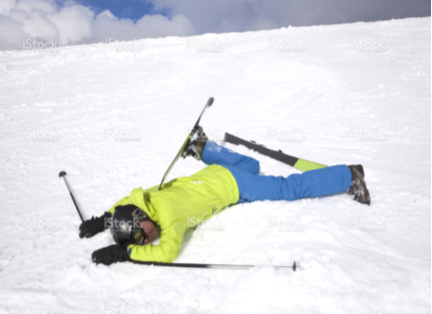The snow season is well and truly here again with the resorts in full swing…
The majority of skiing injuries occur traumatically, often the result of a fall or collision with another skier or object, such as a tree.
Skiing injuries commonly involve the knee, shoulder, wrist, thumb, head and neck.
These injuries often include ACL and MCL ligament sprains/tears, medial meniscal tears, quadriceps and groin muscle strains, thumb joint sprains and shoulder dislocations, fractures and bruising, and often concussion, with some being quite serious requiring surgical management.
If you do receive an injury, the best advice is to get it treated as soon as possible.
Prior to treatment – initial RICE management is suggested (Rest, Ice, Compression, Elevation). Avoid alcohol, and no APRE ski.
If you do require treatment, PhysioFit will endeavour to help you within 24 hours. Please phone 03 9707 4452 to book an appointment.
At PhysioFit Berwick, we offer the following services:
- Physiotherapy treatment for all ski/snowboard injuries
- Post injury / surgery rehabilitation, including supervised rehabilitation programs
- Programs to strengthen muscles used in skiing/snowboarding
- Balance programs to improve skiing/snowboarding to reduce the risk of falls
- Pilates to strengthen core stability
Avoid Skiing Injuries!
Physiotherapist have been treating ski injuries for years and have been able to produce an accurate account of the “how, when, who, why and where” of injuries.
Critical periods for injury:
- First day on the slopes – after a long drive (3.5-6hrs for most of us) all skiers are eager to get straight on the slopes without warming up.’
- First two hours on the slope – snow is harder, body not warmed up, skiing is a little rusty and body may be a little sore from previous day
- Just before a break – the body is fatigued from a demanding session
- Just after a break – the body has had time to cool down and may be out of rhythm. Fatigue is also still a factor
- Last hour before finishing – the body is well fatigued by now and hunger/thirst begins to take over. Skiing conditions can also become a little harder late in the day.
Quick tips to help avoid injury:
- Get fit to ski– prepare ahead for the ski season with a tailored program prepared by your physiotherapist to target muscle groups and balance
- Warm up to increase your body temperature
- Stretch main muscle groups and practise appropriate skiing movement before heading to the lift queue
- Do some gentle stretching after a long session on the mountain
- Consider a practice fall, especially if you have had an injury
- Check that all your gear is functional/safe, or have it checked for you
- Snow-boarders should use gloves with wrist guards to avoid wrist fractures during a fall.
Injuries do occur however careful you may be. Our physiotherapists understand the mechanism and treatment of ski injuries so you can trust that you will be in good hands in the unfortunate event of an injury.
For a printable version, please click HERE.

